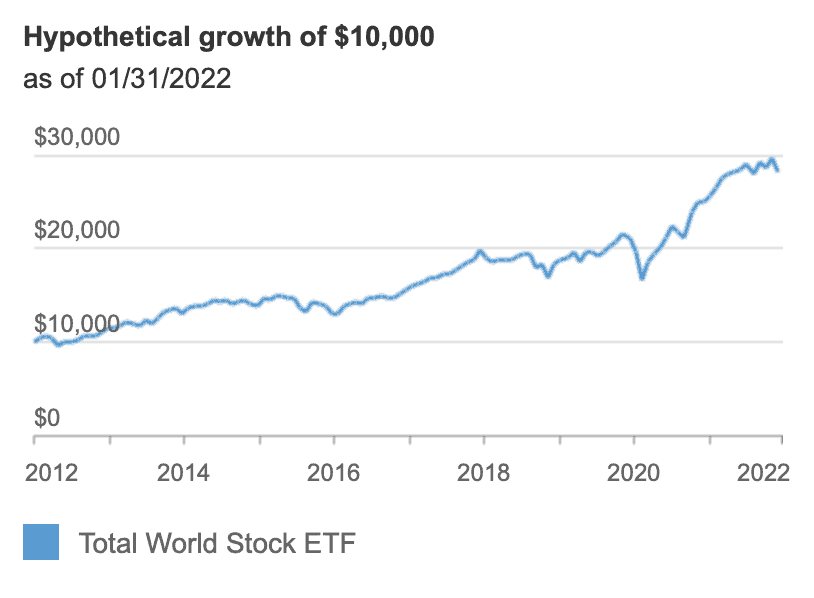Work shapes a third of our lives. If you’re unsure about how to genuinely feel […]
I became fascinated about the broader scopes of thinking after reading The Art of Thinking Clearly by world-class thinker and entrepreneur Rolf Dobelli. It's a waste when bad thinking hinder us from living our best life.
In the post below, you will find various forms of thinking which are good to adopt, enabling you to transform your life. As the saying goes: Change your thinking, change your life.
Making sound financial decisions require various types of thinking. I hope this article will help you to be more mindful on which thinking to adopt, at various time.
Big picture thinking
- Learn continually. Be a lifelong learner
- Think about what learning opportunities you can pursue
- Listen intentionally
- Step out and see from others' perspective
- See the big picture and know the destination
- Look beyond the immediate
- Embrace & deal with diverse, complex ideas
- Be comfortable with ambiguity
- Be okay to try and fail
- Think beyond yourself. Think big
Possibility Thinking

- Stop focusing on what is "impossible"
- Eliminate negative thoughts
- Give yourself the permission to believe that what you want is possible
- Look for possibilities in every situation
- Dream one size bigger than you usually do
Reflective Thinking
- Question Popular Thinking
- Think before you follow - Don't follow the popular opinions automatically
- Think what's best, not what is popular
- Question what is given thoughtfully
- Appreciate thinking that is different from yours
Long term thinking
- Have clarity of where you want to be and work backwards to know what you need to do in the present
- Make a 5 year plan
- Be intensely future-oriented
- Consider the consequences of your decisions and actions today
- Pay the price today - have self discipline, self mastery and self control
Slow thinking
- Slow down & think with greater precision
- Useful for important & long term decision
- Think methodically and consider carefully each action to improve decision making
Informed thinking
- Get the information to make the right decision
- Look before you leap
- Search for the hidden flaw in decision making that could prove fatal to the outcome
- Take time to be informed and gain knowledge
- Never stop learning & gathering information
- Be prepared to fail. Failure, trial & error is essential to ultimate success
- How to think about failure
- See it as a resource - learn how to manage & embrace failure
- Don't see failure as an indication to incompetency
Goal-oriented thinking
- Be absolutely clear about what you really want to achieve
- Have a clear, specific written goal and plan that you work on daily
- Organize your life around the roadmap to reach the goal
- Have clarity, focus and concentration.
- Concentrate single-mindedly on 1 thing at a time, stay with it until it is completed
- Work all the time you work - Only work on the highest value activities
- Be clear about your goal but flexible about the process of achieving it
- Be absolutely clear about the right thing to do, commit wholeheartedly to the new course
Results oriented thinking
To get maximum results, ask
- What you are trying to do
- How you are trying to do it
- Are you getting the results you want
- What are your assumptions
- What if your assumptions are wrong
- Could there be a better way to achieve the results
Strategic thinking
- Know what you want to achieve
- How you expect to achieve it
- Target date to achieve it
Productive thinking
- Do fewer things
- Do important things, only 20% of the things that produce 80% of the results
- Get better at each important task
Positive thinking
- Let go of limiting thoughts
- Have a rich & abundant mindset
- Visualize what you want
- Accept complete responsibility with no excuse
- Don't fear failure and criticism
- Practice positive thinking
- Don't impose self-limiting beliefs
- Let go of the past
- Don't complain, criticize, judge, blame or condemn others for anything
- Don't be sensitive and critical
Flexible thinking
- Overcome fear by trying something new. Be experimental
- Be resourceful. Don't be helpless
To increase flexibility & mental agility,
- Rethink
- Pause, recalibrate, take a time out and look at your situation objectively
- Ask: what am I trying to do, how am I trying to do it, could there be a better way?
- Prospection: Think many steps ahead and generate alternative scenarios
- Re-evaluating
- Practice Zero-based thinking (ZBT). It is a decision-making process by imagining yourself at the point before particular decisions were made, and free to make those decisions with the knowledge that you have now about their outcome.
- Consider doing things completely different
- Re-organize
- Look for ways to increase efficiency and effectiveness
- Restructuring
- Pareto principle: Do 20% of the work that will account for 80% of the results
- Identify the skill that, if you were excellent at it, would enable you to make a more valuable contribution. Set a goal to develop this skill, create a learning plan then work to master this skill
- Reinventing
- Continue to imagine what would you do differently if you were starting over again today. Eliminate sunk cost.
- Regaining control
- Take control of the situation and make tough decisions if needed
- Think what you should do more of, less of, start or stop
- Be realistic and get the truth
- Do the homework to get the facts then think with certainty
- Think through the pro and con
- Be ready for the worst case scenario
- Take control of the situation and make tough decisions if needed
Creative thinking
- To unlock your creativity, do more of the things that will give you results today, do less or stop the things that are not working out and start doing something completely new or different
- Have ideas, explore options and imagine
- Embrace ambiguity, explore gaps and connect the ideas that may be unrelated
- Don't fear failure
- Be innovative. Form a better idea, based on a good idea
- Seek faster, better and easier ways to accomplish your goals
- CANEI principle: continuous & never ending improvement
- Keep an open mind
- Be open to new and different approaches to any situation
- Consider every aspect of a problem before jumping into a conclusion
- Be willing to consider different ways to achieve the same results
- Keep asking why, why not, what if
Rich thinking
- To be wealthy on the outside, think like a rich person on the inside
- Focus & concentrate on excellent performance, on getting better consistently at the most important work you do
- Wealthy people don't lose money, successful people don't lose time
Work smart and really hard, strategise, think big, collaborate, be creative & innovative
Thank you for reading my post! Please feel free to connect with me and get updated posts on Facebook.







